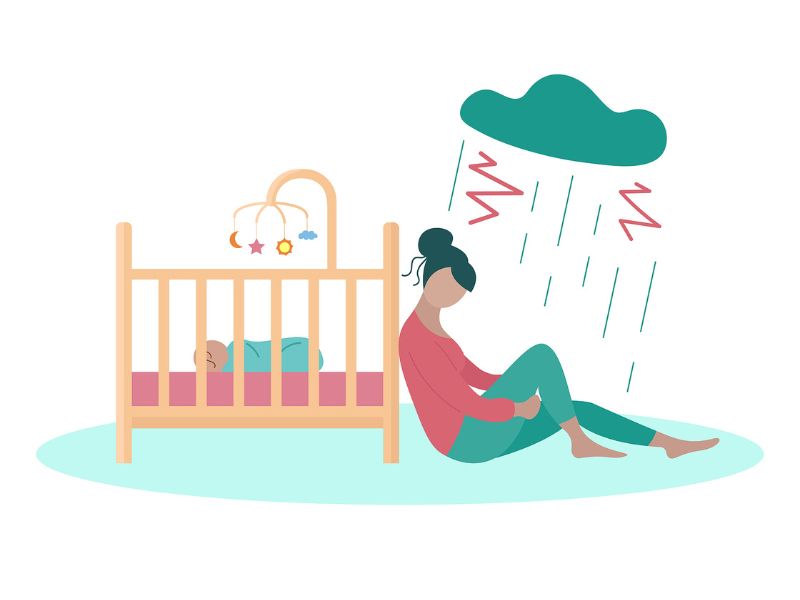A severe mental disorder caused in new mothers after giving birth to a newborn baby is known as Postpartum Psychosis. In this disorder, the new mother has difficulty processing their emotion, which can result in Delusion, Hallucination and even Schizophrenia in some cases. Postpartum Psychosis is also known as Postpartum Emergency as it threatens newborn babies and mothers.
Postpartum Psychosis Symptoms
The Postpartum Psychosis Symptoms can be easily misunderstood with feelings of sadness, anxiousness or being overwhelmed with emotions, which is common in new mothers. But when postpartum psychosis is severe, a woman may act like looking off into space, muttering to herself, rejecting food, or speaking illogical statements.
Other Postpartum Psychosis Symptoms that an individual should look out for:
- Sudden thoughts of harming the baby
- Delusions or losing touch with the reality
- Hallucinations (seeing or hearing things that aren't there)
- "Flat affect," or a lack of emotional response or blank facial expression
- Difficulty in responding emotionally to the baby
- Changes in appetite or eating
- Irritability
- Confusion
- Agitation
- An inability to bond with baby
- Thoughts of suicide or the belief that the baby or the family would be better off without the mother
The Risk of getting Postpartum Psychosis
Postpartum Psychosis is a relatively rare condition seen in women—one to two new mothers out of every 1,000 experience postpartum psychosis. Almost half of the mothers with postpartum psychosis also have a history of mental illness. It's unclear what leads to postpartum psychosis, but the woman's mental health is a significant factor. The disease can be brought on by the sudden change in hormone levels after delivery.
Postpartum Psychosis Treatment
A single combination of medications for this disorder doesn't exist since everyone has different stimuli and reacts to the treatments differently. Commonly antidepressants are provided to new mothers who are going through Postpartum Psychosis. If the individual doesn't respond to the medications, further treatments such as Electroconvulsive Therapy (ECT) may also be suggested.
Having preventive and personal mental health care for new mothers is always better than Postpartum Psychosis Treatment, Such as:
- To maintain a careful check on the actions
- Getting adequate rest
- If it's difficult to breastfeed, don't feel guilty or under any pressure
- Keep visitors to a minimum, especially during the first several days
- See physician frequently for checks
- Journal your emotions
- Rely on family and friends for assistance around the house
Conclusion
It is always better for women to take preventive mental health solutions. General counseling and seeking professional help always help.
If you're concerned about yourself or your partner that might develop this disorder, get connected with Solh Wellness. We always aim to provide our users with preventive mental health solutions with easy 24/7 accessibility and affordability. Download the Solh App and get started now.



